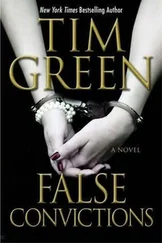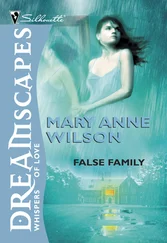That Tríona had actually loved Peter Hallett, Nora had no doubt. He’d probably never deserved it. But what would the world be if people loved only those who were deserving? She often wondered what had been set in motion the first time Peter Hallett laid eyes on her sister. People talked about chemistry, and some of what people considered chemistry was actually measurable—pheromone levels, synaptic activity, pupil size. But those were just the observable responses surrounding the original glimmer of attraction, just as the songs and poems that tried to delimit love were not the thing itself. And what of the end of love? Sometimes it seemed to reverse itself in an instant. Perhaps it was not chemistry after all, but more akin to a magnetic charge, a force of nature that could bring people together and just as strongly repel them. Was that what had happened with Peter and Tríona?
The very next picture in Nora’s bundle was of Peter Hallett himself. Every detail of his appearance was exquisite: the thick, wavy black hair, full lips so prominent in the lean face, the eyes that could vary from deep aquamarine to cobalt, depending on the light. For some reason, it was always the word “beautiful” rather than “handsome” that sprang to mind when she looked at him. Always something subtly ambiguous about his sexuality, which somehow seemed to magnify its power. His gaze conveyed a blend of sensuality and self-assurance, tempered perhaps with a touch of wariness, a hint of vulnerability. There was something restless and impulsive about him, something dangerous and mysterious and mercurial—all qualities not unlike those of the theater directors and other creative types to whom Tríona had ever been drawn. One glance from those blue eyes could make you feel extraordinary, adored. Without warning, Nora was jolted back to the day she’d met Peter Hallett.
It was only about six months after she’d started seeing Marc Staunton, a fellow med student. Marc had been in excellent spirits that evening, pouring them each a glass of wine before they were off to dinner and then to the opening night of The Winter’s Tale . Tríona was starting to show real promise as a professional actress. She’d caught some critical attention for roles at smaller theater companies, and had just been cast as Hermione, her first major Shakespearean lead at the flagship regional house. It was a very big deal. Nora remembered feeling jittery with anticipation. Marc said: “You’ll never guess who called me today, out of the blue—my old college roommate. He’s just back from living in Europe, thinking of setting up shop here as an architect. I told him we might be able to swing an extra ticket tonight, introduce him around a bit. I hope you don’t mind.”
“Why should I mind? I’m sure we can finagle something. What’s he like?”
“All right, I suppose—if you go in for charming, talented, unbelievably good-looking people. He’s always been like that—a little too extraordinary. You want to hate him, but it’s not possible.” Marc hesitated. “You know, on second thought, maybe I should call the whole thing off, tell him I couldn’t score the extra ticket.”
“Relax—he’s probably fat and bald by now.”
Marc shook his head. “Nora, Nora, Nora. You don’t seem to comprehend the sort of person we’re talking about. It’s all right—you’ll understand when you meet him.”
Even with that forewarning, she was not prepared for the dazzling, dark-haired stranger who approached her in the theater lobby. He took her hand with a flourish, and pressed it to his lips.
“Nora—Marc’s description didn’t do you justice.” He must have seen them come in together.
She was genuinely flustered, not only by the suddenness of Peter Hallett’s approach and the oddly antiquated gesture, but also by the intense blue eyes that locked onto hers with a mixture of curiosity, playfulness, and frank sexual appraisal. The memory of that first encounter made her blush, even now.
“Unhand her, you rotten bastard,” Marc said, approaching from behind and clapping his friend on the back. “God, you haven’t changed a bit. I turn my head for half a second, and there you are, worming your way into my place—” In that fraction of a second, Nora wondered what the little exchange revealed about their relationship as roommates. Despite the mock jealousy, it was clear that Marc was enjoying himself.
But as soon as the curtain rose and Peter Hallett set eyes on her sister, all idle flirtation with Nora and anyone else abruptly ceased. How perfectly still Tríona had stood in that shaft of light at the play’s closing scene. How strange and magical she had seemed—the wronged wife turned by her grief into stone. Nora had often found herself wondering whether Peter Hallett had been attracted to the flesh-and-blood Tríona that night or to her character, Hermione. Whatever the answer to that question, his pursuit of Tríona had been relentless, full press from the beginning, and he had not stopped until he possessed her. His campaign had begun at the opening-night party after the show, when he stole a bottle of champagne from the servers and followed Tríona around all night, ready whenever her glass was low.
Later, as they stood at the mirror in the ladies’ room, Nora had ventured an aside: “I think Marc’s friend likes you.”
Tríona stared absently at her own reflection. “Who are you talking about?”
“The guy who’s been following you around all night—Marc’s friend, Peter Hallett.”
“Oh—right.” Tríona concentrated on something in the corner of her eye. “The stalker.”
“Something wrong with him?”
“I really can’t say, Nora. I only just met the man. He’s a little too good-looking, don’t you think?”
Was it tragic, or merely ironic, to be written off as too good-looking by someone whose own appearance had made passersby walk into doors and lampposts? Nora had actually witnessed such occurrences, sad to say, on more than one occasion. To her credit, Tríona never had any idea about how her exterior affected people. Perhaps it was growing into beauty after an ugly-duckling childhood that made her so infuriatingly oblivious. And maybe it was that very indifference that piqued Peter Hallett’s interest; maybe he couldn’t resist a challenge. He could have simply toyed with Tríona and cast her aside—but it didn’t happen that way. He was the one who pressed for marriage, for children. Tríona had always expressed ambivalence about both, but for some reason she went along with Peter Hallett. Eventually, every one of them had fallen under his spell. Some were caught in it still.
Nora told herself she shouldn’t have been so surprised when her parents stood by him after Tríona’s murder. They were quintessentially decent people, and Peter knew exactly how to play that against them. Her father, especially, had always been uncomfortable outside the realm of fact; he was mistrustful of secondhand information, of shadowy suspicions and feelings. Tom Gavin was a scientist, after all, someone who lived in a world shaped and defined by demonstrable proof, so how could he possibly condemn anyone without hard evidence? He had no choice but to believe that Tríona’s death was a random crime. Nora had seen flashes of doubt in her mother’s eyes, but Eleanor Gavin was possessed of an inborn pragmatism that would not let her risk alienating the one person who controlled access to her only grandchild. It was impossible to fault them, and impossible not to. Nora and her parents had lived the past five years in a state of artificial suspension, never speaking about Peter, never speaking about Tríona—barely speaking at all.
It wasn’t that she hadn’t tried. She had gone to them right after Tríona was killed, trying desperately to convince them that Peter was responsible. They had refused to believe her. And they weren’t alone—everyone who knew Peter Hallett thought she was certifiable. After all, what had she seen, exactly? Nothing obvious. Only tiny nuances, accumulations of behavior: a certain glint in Peter’s eye when he looked at Tríona, the faintly proprietary way he touched her. But whenever Nora tried to describe the things she’d witnessed, all those formless, nagging suspicions seemed to scatter, like so many slithering spheres of mercury. So she tried to ignore them, push them away. How could anyone fathom the intimate connection between two people from the outside? Again and again, she had to convince herself that whatever went on in Tríona’s marriage, it was none of her business. Until that night—
Читать дальше












